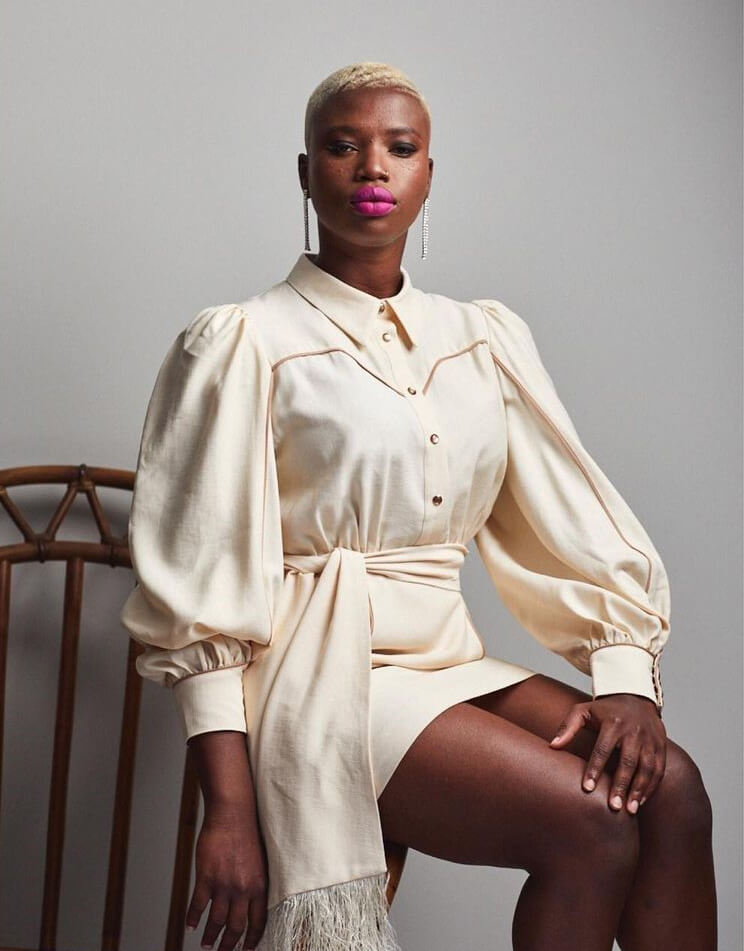Written by Khadija Gbla
According to the World Health Organisation, “Female genital mutilation (FGM) involves the partial or total removal of external female genitalia or other injury to the female genital organs for non-medical reasons.”
There are no health benefits to FGM, the practice exposes girls to severe acute and chronic health consequences including pain, bleeding, difficulty urinating, cysts, infections and causes problems in childbirth. The data also shows that the rates of infant resuscitation and death are higher among babies born to women who have undergone genital mutilation.
So why is FGM practiced all over the world? While there are many reasons cited depending on the region, FGM is deeply rooted in gender inequality.
FGM is often seen as a rite of passage for a girl becoming a woman but it is also used as a means of control that ensures women are premarital virgins and because it makes sex so painful, they are therefore unlikely to go outside the marriage.

Make no mistake this goes to how the world treats women’s bodies and sees women’s sexuality and pleasure as a threat. The fact that FGM is practiced on girls between infancy and age 15 is nothing short of a human rights abuse.
Women also internalise the ongoing sexism. I was only nine years old when my mother held down my thrashing body while an old lady cut off a very important piece of my body. When I asked my mother years later how she could enable the abuse of her daughter, she responded that she did it for me – for my own good.
For girls and young women living in fragile and conflict-affected settings, the COVID-19 lockdowns posed an increased risk of FGM.
According to Sadia Allin, Plan International’s Head of Mission in Somalia, “The lockdown was seen as an opportune time for the procedure to be carried out in the home with ample time for healing.”
During the height of lockdown in Australia, it was certainly worrying to think of all the little girls that couldn’t seek support from schools, teachers, childcare workers, and counsellors, who when are trained, are able to recognise and report the warning signs of FGM to authorities.
As a survivor of FGM and the Director of Ending Female Genital Mutilation Australia, I have met with hundreds of fellow FGM survivors in Australia who have been plagued with the life-long and brutal health consequences of FGM.
Contrary to popular belief, Female Genital Mutilation also happens in Australia. In this country, 11 girls a day are born at risk of FGM. The number of women and girls at risk of FGM has more than doubled since 2014 and over 200,000 survivors need support.
Sadly, in working with community educators and health care professionals, I have found that they often believe that FGM is a cultural practice and that to intervene would be disrespectful and insensitive.
This is child abuse that causes lasting physical and psychological damage. It would be negligent and amoral to recognise the signs and yet choose to do nothing.
Stopping FGM is everyone’s responsibility.
So today, on International Day of Zero Tolerance for Female Genital Mutilation, you must begin to play your part to eliminate this act of violence against women and girls.
If you don’t know where to start, here are some simple things you can do to help stop FGM:
Raise awareness
Share information about FGM on your social media channels and talk to your sphere of influence about the issue.
Get training
Book in for FGM training and educate yourself and others on the child protection law in Australia that relate to child abuse and sexual abuse. This is especially relevant for teachers, nurses, doctors, social workers and other professionals who are working with girls at risk.
Know the warning signs
If you know a girl who comes from a community where FGM is practiced and is going on holiday to take part in a “special ceremony,” it is probably a good idea to report it.
Report it
If you are in danger of FGM or if you know of a girl in danger, please call 1800 522 707: Step by step guide to making a report to Child Protection of Child First.
Watch my TED Talk
FGM survivors can seek holistic treatment and counselling at Desert Flower Centre South Australia.
Khadija Gbla is the Director of Ending Female Genital Mutilation Australia and an Our Watch ambassador.




